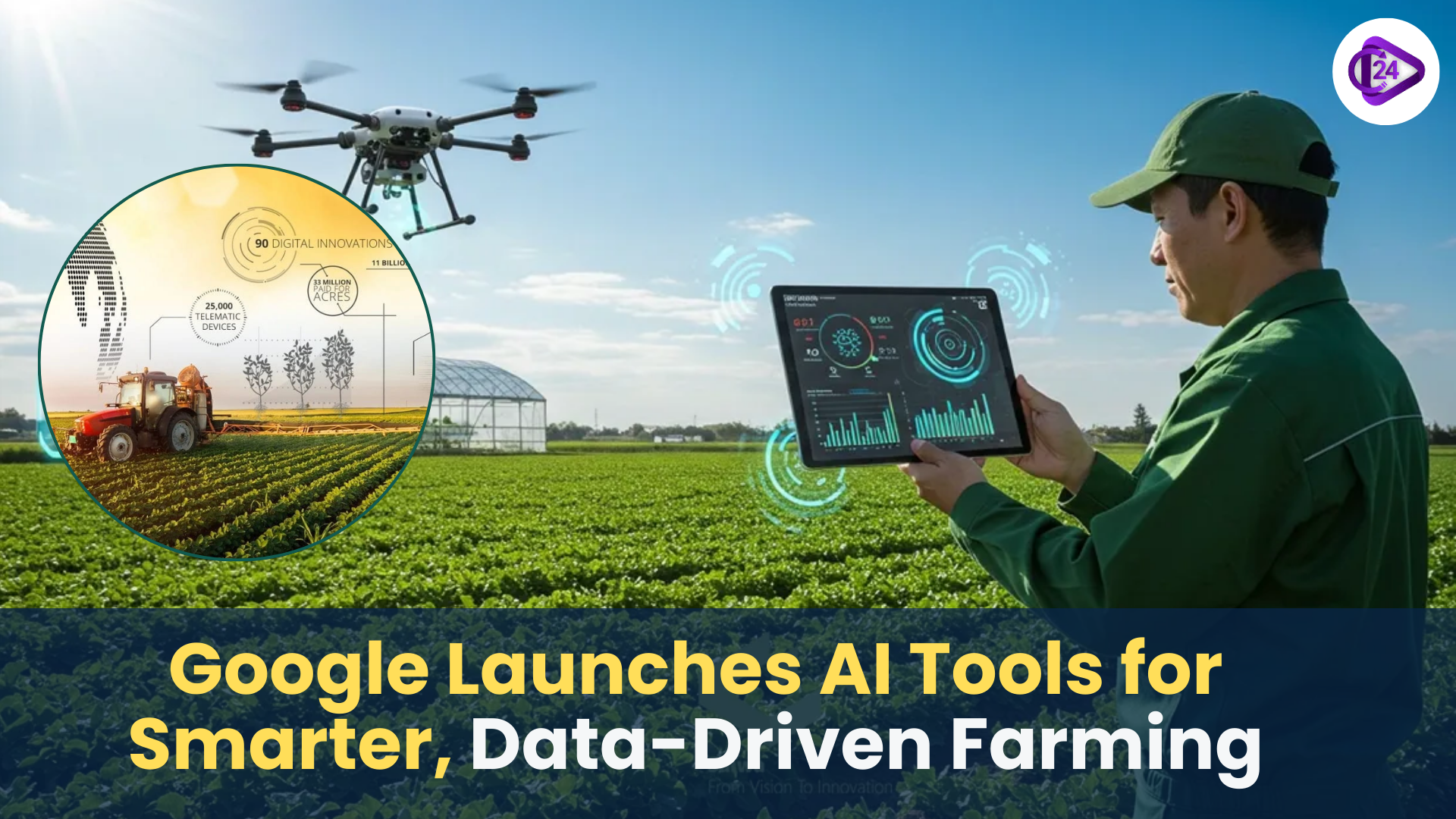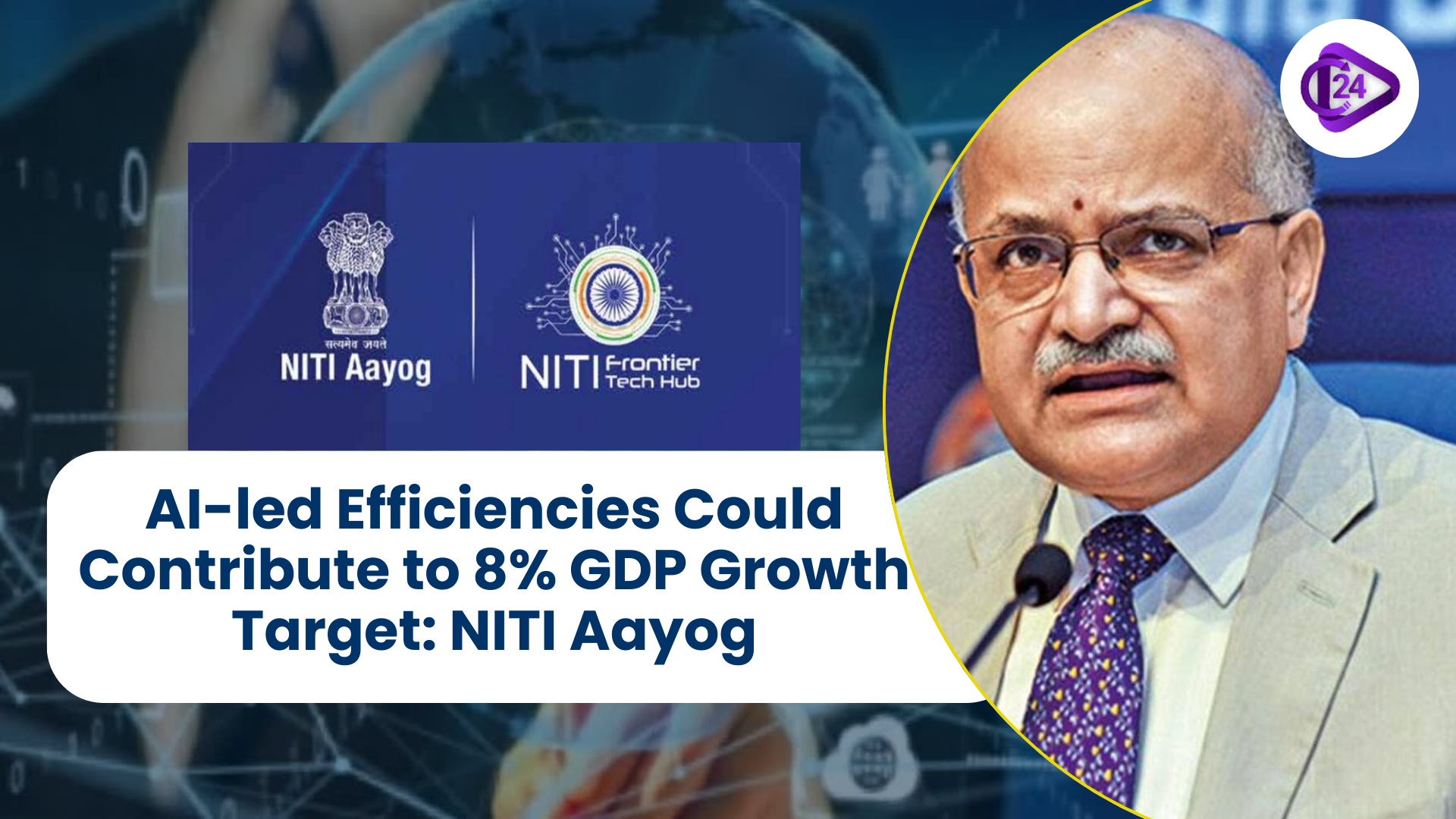
The innovations that Google is introducing to India are focused on the enhancement of the country's agriculture using recent open-source AI solutions but with one caveat making AI models more sensitive to the linguistic and cultural diversity of India. The company introduced the Agricultural Monitoring and Event Detection (AMED) API that will give live information on crops and field activity in India. Through this project (and partnership with IIT-Kharagpur), this is set to boost the local ecosystem and lead towards sustainable agricultural development.
Context
-
Google has introduced AMED API to help the Indian agricultural sector with data-driven insights on a real-time basis.
-
Google, in partnership with IIT-Kharagpur, also wants to create culturally-sensitive AI models capable of addressing the various needs of Indian farmers.
Key Points
-
API AMED Agrarian Surveillance:
-
Use: Heralds important information on crops and field operations which can then be appropriately addressed as a solution to increase agricultural productivity and strength.
-
Impact: Enables agricultural ecosystems to detect and govern the advancement of farming activity.
-
-
IIT-Kharagpur:
-
Collaboration: Google DeepMind has collaborated with IIT-Kharagpur to create localised datasets that monitors cultural diversity within India.
-
Purpose: The partnership is under the Amplify Initiative to ensure that AI models are more sensitive to problems of agriculture in specific countries.
-
-
Localizing AI in Agricultural Context:
-
Improved AI models: AMED Initiative will improve AI models to produce granular, real-time data that is essential to agricultural success, particularly in the climate-risky environment.
-
Objective: Adapt AI solutions to India in the most appropriate ways in response to the unique demands and problems of agriculture in the country.
-
-
The role of Cultural Context in AI:
-
Cultural Relevance: Madhurima Maji pointed out that AI has to be geared towards recognizing localized cultural contexts that are so rich in India in order to be functional among farmers.
-
Objective: It is to incorporate local knowledge into AI models, which will be more effective and helpful to the farming community.
-
How AI is Revolutionizing Indian Agriculture?
-
Smart Irrigation:
-
Optimization of water by using an AI-based analysis of soil moisture and climate.
-
Irrigation systems based on IoT allow the automatic supply of water, and therefore, minimize its losses.
-
Per Drop More Crop, the scheme introduces AI in irrigation systems and makes it more efficient.
-
-
Pest and Weed Control:
-
National Pest Surveillance System: Pest surveillance on artificial intelligence and real-time notifications.
-
robotic weed identification: AI uses weeds and crops to distinguish them and only uses herbicides when necessary.
-
-
Economic Impact:
-
Market Growth: AI in the agriculture market is expected to expand at a 19 percent CAGR and will be worth USD 4.7 billion by 2028 because of precision farming and drone analytics.
-
Kisan e-Mitra: AI-based-chatbot that supports farmers with questions in regards to the government schemes such as the PM Kisan Samman Nidhi.
-
Challenges in AI Adoption:
-
Not Enough Awareness: A vast number of farmers living in rural areas do not know how to utilise AI tools.
-
Excessive Implementation Costs: Major investments that are needed in AI applications such as drones, IoT sensors and automated irrigating provisions are expensive and not affordable by the small farmers.
-
Infrastructural gaps: The low internet speed in the rural regions can make it hard to access artificial intelligence platforms.
-
Data Availability and Quality: Available Data is partial or of low quality and this constrains the influence of AI.
-
Little customization: Majority of AI models are not customized as per the Indian diverse agro-climatic conditions, and cannot be used without detailed research on region specific solutions.
Conclusion
The new AI efforts by Google such as AMED API and the joint project with IIT-Kharagpur will count as a major milestone in the modernization of the Indian agricultural industry. Google is assisting in transforming data into actionable data by making AI models more culturally and contextually conscious, so farmers can overcome challenges such as climate change and drive agricultural productivity throughout the nation.



 ISRO’s Bahubali Rocket Successfully Launches India’s Heaviest Communication Satellite CMS-03
ISRO’s Bahubali Rocket Successfully Launches India’s Heaviest Communication Satellite CMS-03 IIT Madras Develops India’s First Hybrid-Rocket VTOL for Controlled Soft Landing
IIT Madras Develops India’s First Hybrid-Rocket VTOL for Controlled Soft Landing Google Quantum Technology: Revolutionizing Drug Discovery & Materials Design
Google Quantum Technology: Revolutionizing Drug Discovery & Materials Design India’s GalaxEye Set to Launch Pioneering Multi-Sensor EO Satellite in 2026
India’s GalaxEye Set to Launch Pioneering Multi-Sensor EO Satellite in 2026 World’s 1st Functioning AI-designed Viral Genome
World’s 1st Functioning AI-designed Viral Genome AI-led Efficiencies Could Contribute to 8% GDP Growth Target: NITI Aayog
AI-led Efficiencies Could Contribute to 8% GDP Growth Target: NITI Aayog India Projects Five-fold Growth in Space Economy to $44 Billion by 2033
India Projects Five-fold Growth in Space Economy to $44 Billion by 2033 Ministry of Tribal Affairs to Launch the Beta Version of “Adi Vaani”
Ministry of Tribal Affairs to Launch the Beta Version of “Adi Vaani” UNGA Launches Two New Initiatives to Strengthen Global Cooperation on AI Governance
UNGA Launches Two New Initiatives to Strengthen Global Cooperation on AI Governance ISRO holds Air Drop Test for Gaganyaan Mission
ISRO holds Air Drop Test for Gaganyaan Mission






